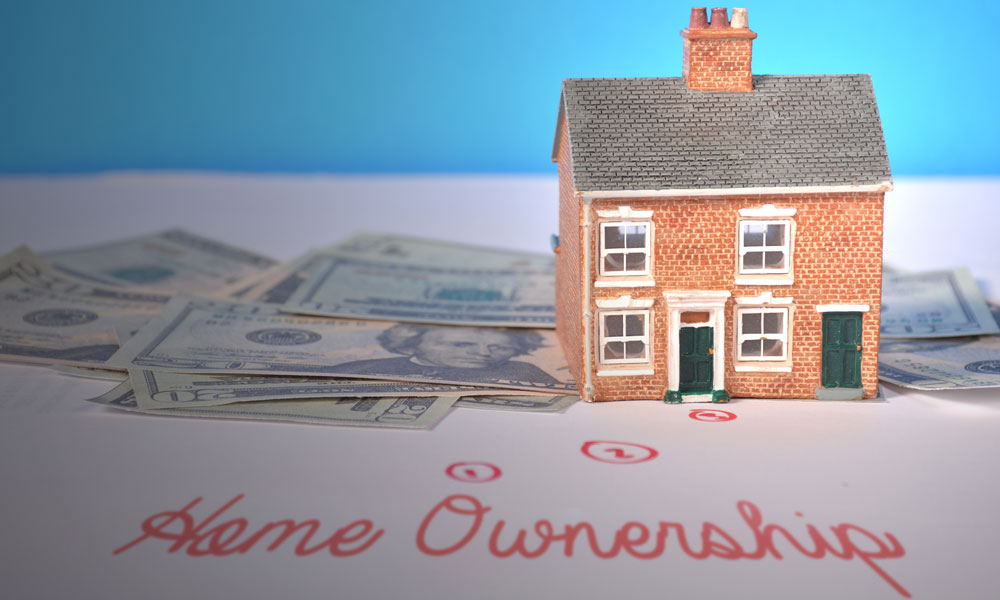

Deprecated: Implicit conversion from float 1758201408.266136 to int loses precision in /www/investmentzen_357/public/blog/wp-content/plugins/intelly-related-posts/includes/classes/utils/Logger.php on line 93
Deprecated: Implicit conversion from float 1758201408.268228 to int loses precision in /www/investmentzen_357/public/blog/wp-content/plugins/intelly-related-posts/includes/classes/utils/Logger.php on line 93
A Tale of Two Homes
One of the homes down the street from me is a duplex. Each side is 905 square feet and has 2 bedrooms and 1 bathroom. The duplex is inhabited by renters who each pay $1,350 per month in rent.
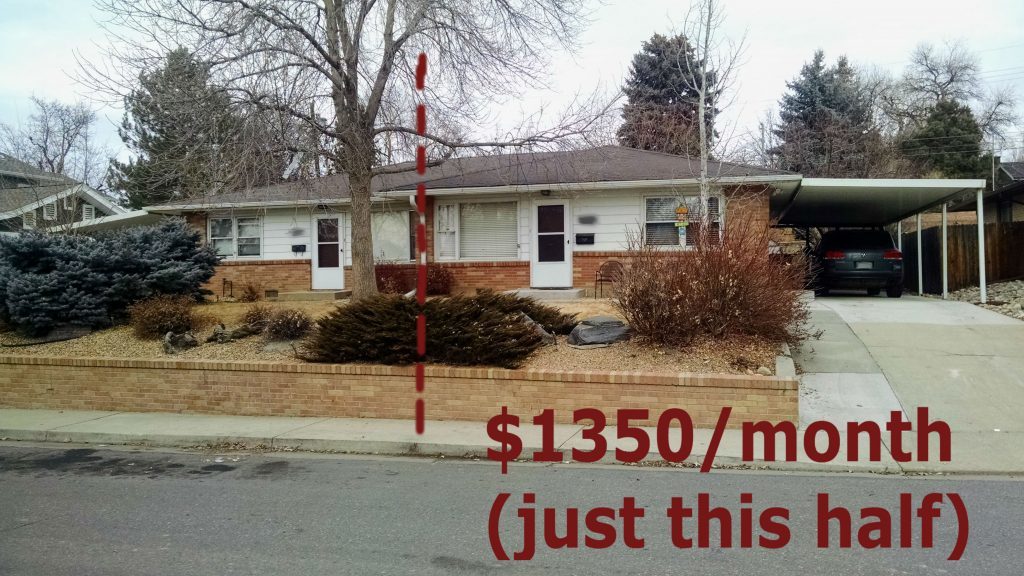
I live in a fairly luxurious home that I purchased in 2013. I have about 1800 square feet of living space including 4 bedrooms and 3 bathrooms. My monthly payment, which includes principal, interest, taxes and insurance is $1,218.44 per month (15 year mortgage at 3.25% with 20% down). I pay $130 less per month than the renters who live in the duplex.
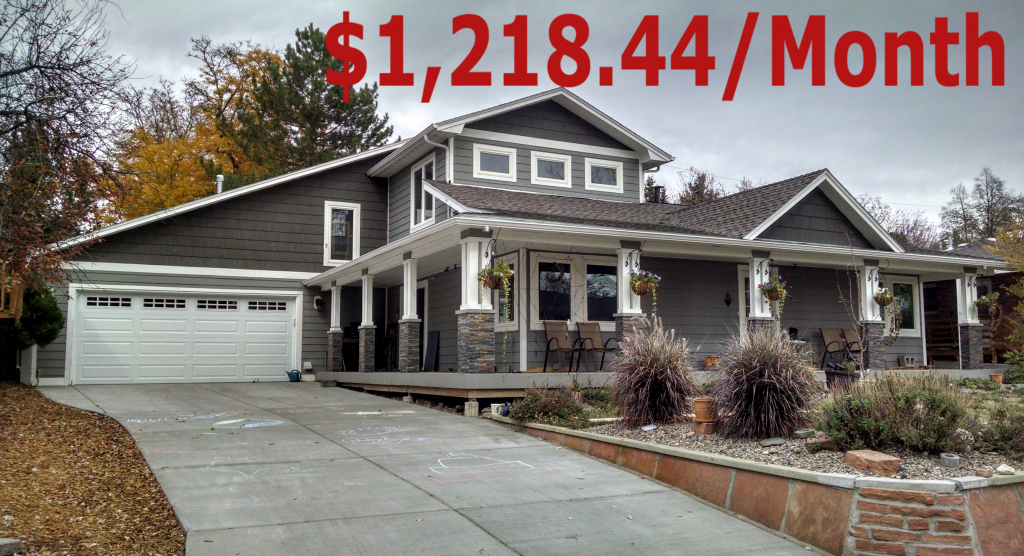
I’m in a good situation:
- The renters will have additional rent increases in the coming years. I’ll have small property tax increases, but the majority of my payment is locked in at 3.25% (15 year loan) and will never change.
- In less than 12 years, my mortgage will be paid off and it will cost me about $200/month to live in my home.
- If I were to rent a home like mine, I’d have to pay at least $2,300/month in rent, over $1,000 more than I pay now for my mortgage.
Dismissing Home Ownership
It’s popular lately to dismiss home ownership. Smart bloggers who I respect like Jeremy from Go Curry Cracker, Jim Collins and Millennial Revolution have all denounced owning a home in favor of renting.
They present some solid arguments and I don’t disagree with them. In many cases, it just isn’t financially beneficial to buy a house. You’d end up with more money if you rented and invested the rest in a low-fee index fund as Warren Buffett recommends.
It doesn’t have to be this way though. With a little unconventional thinking, it’s possible to enjoy home ownership and make some money too.
My Favorite Strategies for Owning a Home
1) House Hacking
Scott Trench over at BiggerPockets bought a duplex in Denver, one of the hottest markets in the United States. His monthly payment was $1,550. He rented out one side and lived in the other. Since each side had two bedrooms, he rented the spare bedroom in his half. This arrangement brought in $1,700/month. Not only did he have a free place to live, but he brought in $150/month after all expenses.

Scott’s duplex
Scott’s strategy often works even better with larger properties. Why not consider a 4-plex? Rent three units and live in one. My friend Chad Carson over at coachcarson.com also used house hacking to get paid to live in one of his first homes. He bought a 4-plex in his hometown, lived in one unit, and rented out the other 3. He recently shared the numbers with me:
- Rent from 3 units ($400/unit): $1,200
- Mortgage payment + taxes/insurance: $1,100
- House Hacking positive cash flow: $100

Chad’s 4-plex
Yes, Chad had some maintenance and long-term upkeep of the building that added to those numbers. But so does every other homeowner. The bottom line was that he was much better off financially with this house hack than renting or just buying a regular home.
House hacking encompasses much more than multi-family buildings and long-term roommates. Have you considered occasionally renting a spare room on Airbnb? How about renting your entire home when you’re not there? Sharing your home for a couple of weekends a month or a couple of weeks a year could save you loads of money.
2) Value Add
I mentioned that I’m paying significantly less than my neighbors to live in a far nicer house. You should be asking:
How did you do this?
The answer is easy; I found a really nice neighborhood and bought the worst house in it. The home was a neglected rental that had been foreclosed on. I improved the home, making it one of the prettiest on the street. This strategy is called “value add.”

Before and after
I bought the home in June of 2013 for $176,000. After spending $100,000 and about 1,000 hours of hard work, the home appraised in November of 2016 for $460,000. I realize that I have some explaining to do right now:
“You said you’re paying $1,000 less than what you’d pay to rent the home, but you put $100,000 into it! And how about your down payment?”
True. It will take me about 8 years to recoup the money spent on the renovation and another 3 years for the down payment. However, if I sold it today, I’d make a profit of almost $180,000. In under 12 years, the home will be paid off.
“1000 hours of hard work? Come on now!”
This home was time intensive. However, a $180,000 return for 1,000 hours of work is spectacular. Before you dismiss the value add strategy:
- A little hustle never hurts: The average American watches over 1500 hours of TV per year. To look at my situation another way, I gave up 1,000 hours of TV for $180,000.
- Profits are tax-free: In the United States, if you own a home for 2 out of the past 5 years and live in it for 2 out of the past 5 years, you pay no capital gains. The law allows you to exclude up to $250,000 as an individual or $500,000 for a joint return.
- Embrace DIY: I’ve flipped many houses, but when I started, I had no skills. Since most of the cost of home projects is labor, you’ll save loads of money doing some tasks yourself. Just learning to tile has saved me a small fortune.
3) House Hack your Value Add
My favorite strategy is to combine house hacking with a value-add property:
- Buy an ugly, multi-unit property in a great or up-and-coming area. You’ll get the property at a discount because it isn’t turn-key rentable.
- Start swinging the hammer! Put tenant friendly finishes in the home to make it durable for years to come.
- Charge above average rents for your newly rehabbed property.
- Sit back and count your money.
To Own a House or Not…
Some folks are fond of saying this:
Your home isn’t an investment.
I don’t accept this. With a house hack, buying a house is a good investment. The home will provide an income stream that could let you live for free. With my current value add property, the payoff will come at the end when I sell it.
You should consider house hacking and value add if:
- You’re comfortable being a landlord: It takes a certain temperament to manage tenants. Screening your potential tenants like you’re the CIA will go a long way to preventing future issues.
- You’re willing to live in an unconventional situation: House hacking may require you to share your living space. This is a great strategy for someone fresh out of college.
- You’re willing to give up some TV time: Yes, there will be work involved. Don’t complain. Do you want to be wealthy or do you want to watch reruns?
- You’re willing to learn some skills: Learning basic home skills can be scary. I assure you it’s really not that hard. Fire up YouTube and visit the local library to get started.
- You’re location independent: I like buying into an area that is up-and-coming. Look for a region with a strong job market and net population gains. Find the part of town that isn’t the nicest, but that folks are investing in. Pro tip: Look for dumpsters out front and building permits in the windows, both signs that folks are investing in their properties.
Forget ownership if:
- You want a new home: Home builders aren’t stupid. A new home will be priced at the top of the market. There is little money to be made.
- You must live in New York or San Francisco: There are folks who can make the numbers work in expensive cities, but it’s much more difficult.
- You value flexibility: If you live the Go Curry Cracker lifestyle (never in one place for any length of time), don’t buy a home.
I love home ownership, but only in certain cases. Before I make an offer on a home, I’ve already planned my exit strategy, even if it’s a decade away. If I can’t be reasonably sure that the home will add to my bottom line, I keep searching.
I hope that you consider house hacking or a value add property. Why live in a normal home when you can turn your living situation into a money machine? And never forget, making money beats TV any day of the week.
Photo credit: InvestmentZen Image Gallery – Creative Commons Attribution License

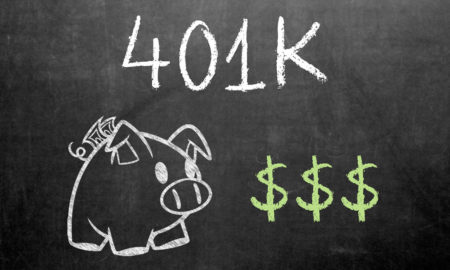

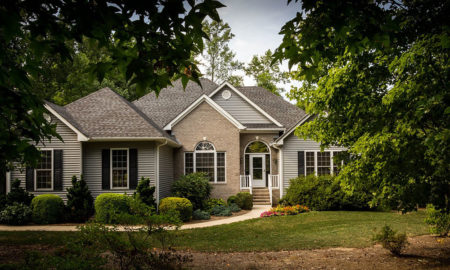





15 Comments